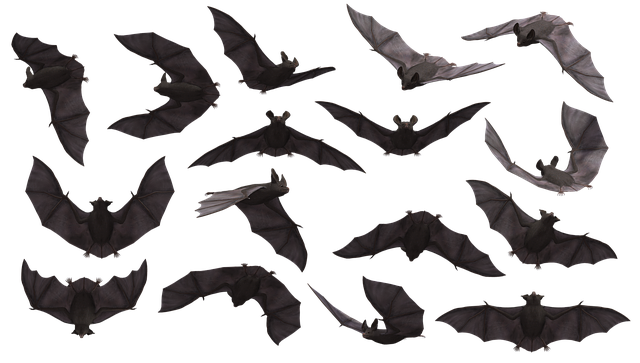Do Bats Hibernate? How to Prevent Your Home from Bats?
These are some of the most common questions that people ask Complete Wildlife Removal. Whether you’re dealing with an active bat infestation, or simply worry because bats are common in your area, we think it’s generally a good idea to educate yourself a bit on common types of wildlife, and bat customs. This will help you keep your cool, and not panic if you are the victim of a bat infestation.
So, do bats hibernate?
The answer is that it depends on the species of bat in question, and also on the climate. If they live in a climate where winters get pretty cold, and insects die off (a bat’s primary source of nutrients), a bat will be faced with two options: hibernate or migrate. Now, some bats choose to migrate, leaving off for warmer climates, where their favorite insects are still abundant, while others would rather hibernate, hunkering down over the winter, and relying on stored fat.
In warmer climates, like in Florida, bats don’t need to do either, since the generally warm weather keeps them in a constant supply of delicious insects. And while that might be great for the bats, it’s not such great news for homeowners in the area.
It is possible to discover bats hibernating inside your home, just like over the summer, it’s possible to discover bat colonies inside your home, raising their young. At this stage, we recommend reaching out to a wildlife removal professional, to advise you on what to do next, and ideally, to handle your bat problem for you.
Unlike other types of nuisance wildlife, bats are quite tricky, since, in many states, they are actually protected by law. This is because feeding as it does on a wide variety of pesky insects, the bat is actually considered useful for the environment in many states. As such, attempting to capture, remove, or actually kill bats could mean legal trouble for you, the homeowner. Rather than risk that, we think it’s a better idea to leave it up to a qualified wildlife removal professional, already familiar with local laws.
What can you do about bats on your property?
If you’re worried about bats on your property, there are several steps you can take, such as building a bat house. This is a special construction that you will place somewhere around your home, if you like, or anyway, near enough to attract any bats that would otherwise be inclined to move into your own home. Bat houses are quite a common practice around farms or larger properties, precisely for the above reason. Since a bat feeds on all sorts of nasty insects, it can actually be quite a good idea to have bats around your property, as they will also rid you of invasive, unhelpful pests. It also gives the bats something else to focus on, thus further ensuring your home’s safety.
Aside from that, a good way to prevent bat infestations includes inspecting your property and removing points of attraction. What you need to understand about a bat infestation is that it can’t occur, if there are no weak spots in your home. Usually, a bat will discover some sort of entry point (be it a missing shingle, a crack in the wall, or a broken window), and take it as a sign that it should move in. This is why it’s important to regularly inspect your home, and promptly seal such entry points, lest you attract unwanted animals into the home.
Alternatively, you could try introducing the bat’s natural enemy, the owl, to your property. You can simply install a perch high up, and that will most likely attract an owl or an eagle. These natural predators are extremely effective in keeping nuisance wildlife like bats off your property. On the other hand, they may become a problem for you or your pets, so think about it carefully before inviting an owl into your home.
Most of all, prepare yourself. Familiarize yourself with local laws, and read up on bats in your area. Discover everything you need to know before catching bats by visiting batremoval.org. This way, if you do become the victim of a bat infestation, you’ll know how to keep your cool and act quickly.

